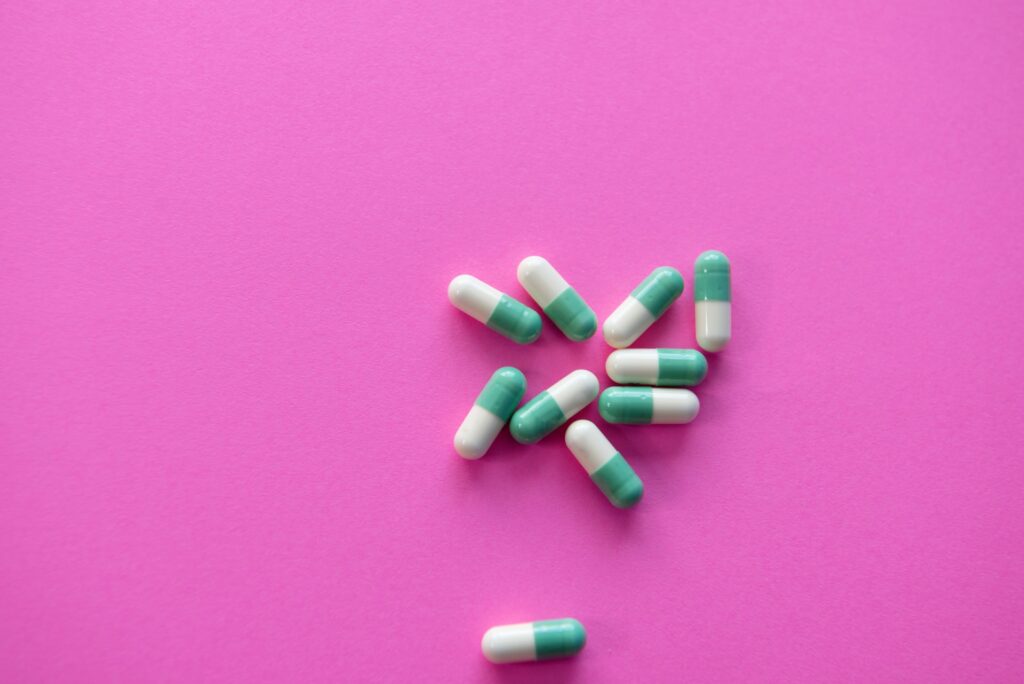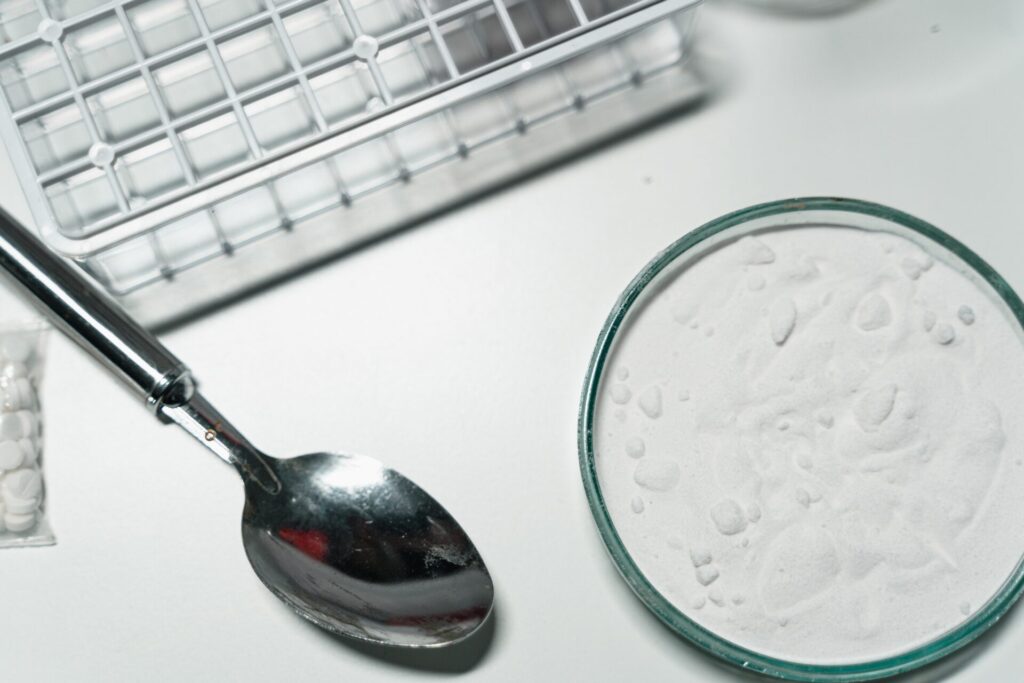- Home
- Types of Addiction
- Mephedrone Addiction Help & Treatment
Mephedrone Addiction Help & Treatment
Neuroscientists and addiction specialists officially categorise addiction as a brain disease of chronic relapsing.
This brain disease of addiction not only makes people extremely dependent on an intoxicating substance, but it also alters the physiology and the natural chemistry within the brain.
When someone is addicted to psychoactive substances, the reward pathways in their brain are altered significantly.
Reward pathways are responsible for releasing positive chemicals such as dopamine during rewarding and pleasurable activities such as playing sports, exercising, completing projects, and sexual intercourse.
When drugs are used however, these pathways become extremely dependent on the addictive substance in order to release these chemicals.
Therefore, the person will struggle to replicate the same feelings of happiness when completing activities if they are addicted to drugs or alcohol.
What was once interesting and pleasurable to a person may not be anymore, simply because the brain and body are dependent on these psychoactive substances in order to receive a high.
When someone is dependent on an addictive substance, whether drugs or alcohol, they will suffer from psychological and physical withdrawal symptoms and cravings.
These can be mild or severe, varying from headaches, insomnia, vomiting, trembling, heart attacks, seizures, and it can lead to death if severe enough.
These symptoms will then have a significant effect on each facet of someone’s life.
Someone who is addicted to drugs or alcohol, particularly Mephedrone, may struggle to maintain relationships or responsibilities.
They may lose interest in things which were previously of interest to them, they may suffer a lack of energy, and they may even develop mental health issues.
What is Mephedrone?

Mephedrone is a stimulantand recreational drug. You may have already heard or even taken Mephedrone without even knowing that it is Mephedrone.
Often, Mephedrone referred to by its street names such as M-CAT, Meow (Meow), Bubble, Charge, Drone, Smack, Plant Food, Bath Salts, and many more.
First made and synthesised in 1929, Mephedrone has since been used in order to experience feelings of euphoria, stimulation, relaxation, sexual arousal, and so on, and because of this, it is often used as a party drug.
It is often compared to addictive substances such as ecstasy and cocaine. In the United Kingdom, Mephedrone’s legal status is classified as a category B drug.
The reason it was called ‘Plant Food’ is because it used to be obtainable legally online in the form of plant food with the warning “not for human consumption”. Additionally, people may also refer to Mephedrone as “Bath Salts”. This is because they were often sold in packages labelled as Bath Salts.
Mephedrone is considered to be a psychoactive drug and to be psychologically addictive, however, it can also cause a physical dependency.
If someone is addicted to Mephedrone, they may experience psychological symptoms such as anxiety, irritability, impulsiveness, delirium, social isolation, suicide ideation, paranoia, and much more.
Additionally, people who consume Mephedrone frequently and excessively may suffer from physical symptoms such as headaches, dilated pupils, heart palpitations, dehydration, overheating, increased heart rate, and much more.
People who are suffering from Mephedrone addiction, also known as Mephedrone abuse (although this term may be outdated and regressive), will need to receive support from health practitioners and addiction specialists in order to recover.
At Rehab Recovery, we offer free advice from a team of non-judgemental professionals, many of whom are in recovery and understand how hard it can be to change your relationship with addiction.
For more information about mephedrone addiction, simply reach out to our 24/7, confidential hotline on 0800 088 66 86.
How is Mephedrone Used?

Mephedrone often comes in the form of a white or whiteish yellow powder. It’s very versatile in its form. Mephedrone can be injected, snorted, swallowed in the form of ‘bombs’ or tablets, or even smoked.
Snorting Mephedrone is the most frequent form of consumption among users. This can cause blood vessels in the nose to narrow, and this can cause the nasal valve to collapse.
Additionally, snorting this drug can expose people to contracting blood-borne viruses such as hepatitis if people are sharing the same item which is used to snort.
While not often used in this way, Mephedrone can also be smoked. This is an incredibly effective way to experience an intense and immediate high from the drug.
This is because once it enters the lungs, it can enter the bloodstream and then the brain within seconds.
However, the high is short lived, and when combining its intensity with its short lived nature, smoking is a way which can increase someone’s susceptibility to developing a Mephedrone addiction.
Injecting the drug is also one of the most effective ways to receive an immediate high from Mephedrone alongside smoking it.
Because it is immediately injected into the bloodstream and transported to the brain, subjects who inject Mephedrone are much more likely to develop a Mephedroneaddiction or suffer from a Mephedrone overdose.
It is less common to swallow the drug in the form of ‘bombs’ (where the substance is wrapped in cigarette paper) or tablets, however, it is an option which users do take.
Because it is considered to be a party drug, it is often used concurrently with alcohol. Consuming alcohol with Mephedrone can enhance its effects, whether the euphoria or the intense withdrawal symptoms experienced after use.
When alcohol is consumed alongside Mephedrone, its consumers will experience more euphoria because of the higher amount of dopamine released.
However, this also means that the dopamine deficit is greater, and the withdrawal stages will be far more intense. Additionally, mixing a stimulant with a depressant (such as alcohol), is dangerous.
While stimulants increase activity in the central nervous system, depressants decrease activity.
By combining these two (which is called polydrug use), their brain and body is receiving contradictory signals which can lead to effects such as cardiac arrest, heart attack, heart failure, overdose, or even death.
Long Term Health Effects of Mephedrone Use and Addiction

In addition to the range of negative short term health effects related to Mephedrone use, there are many long term health effects which need to be thoroughly considered.
These long term health complications not only have the ability to decrease the quality of life by causing physical and psychological deterioration, but it can also lead to death.
Studies show that Mephedrone use has been linked to sudden death among its users. Although the numbers are not high, a team of researchers discovered there have been two fatalities where Mephedrone was the direct cause of death, and many more deaths where Mephedrone was detected during the post-mortem analysis.
While the numbers may not be as high as with other substances, it does have the potential to lead to death.
Additionally, long term mephedrone use can lead to a range of heart problems, including arrhythmias and valvular heart disease.
Arrhythmias is a condition where the heart beats with an irregular or abnormal rhythm, which can lead to heart palpitations, dizziness, fainting, weakness, shortness of breath, loss of consciousness, or even sudden death.
Furthermore, valvular heart disease is a condition where a valve of the heart has been damaged or diseased. Symptoms of valvular heart disease include but are not limited to shortness of breath, chest pain, fatigue, fainting, fever, heart attack, cardiac arrest, or even death.
In addition to these long term physical health complications, Mephedrone can lead to long term and severe deficiencies in dopamine and serotonin in the frontal cortex. This can lead to a range of mental health disorders such as depression, anxiety, and more.
At Rehab Recovery, we offer free advice from a team of non-judgemental professionals, many of whom are in recovery and understand how hard it can be to change your relationship with addiction.
For more information about mephedrone addiction, simply reach out to our 24/7, confidential hotline on 0800 088 66 86.
Drug and Alcohol Rehab for Mephedrone Addiction

Despite the many short term and long term effects of Mephedrone addiction, many of its effects are reversible.
When a patient enters a drug and alcohol rehab for Mephedrone addiction in their location of choice, they will undergo a range of treatment which will not only minimise the symptoms but to help them harness a lifestyle of sobriety and optimal health.
A comprehensive treatment plan will ensure that the patient undergoes a range of therapeutic approaches to target and identify issues in all aspects of the patient’s life.
The treatment plan will treat not only the effects of Mephedrone addiction or use, but also some of the cognitive and behavioural issues which may have led to the patient consuming this dangerous drug.
Alongside the addiction, the treatment programme will address physical and psychological wellbeing, spiritual health, relationship issues, trauma, recovery and living environment, and much more.
Personalisation is also paramount when it comes to optimising the patient’s recovery. An effective treatment plan will incorporate elements of personalisation in order to maximise its effectiveness.
Mephedrone addiction is not only multifaceted but very complex, with addiction cases varying in their causes, symptoms, severity, and more. Because of this, a patient’s case of addiction must be approached as something which is unique.
Inpatient vs Outpatient Rehab

When a patient is undergoing their health assessment, addiction specialists will need to decide whether an inpatient or an outpatient rehab will benefit them more.
While the patient will have the ultimate choice as to whether they undergo addiction treatment as an inpatient or an outpatient, they will receive plenty of guidance and support in making the decision which optimises their recovery.
Mephedrone addiction treatment is typically divided into four levels of treatment. These levels are:
- Outpatient Treatment
- Intensive Outpatient Treatment (IOP)
- Inpatient Treatment
- Intensive Inpatient Treatment (Partial Hospitalisation)
There is a level which is most optimal for each form of addiction. If someone is suffering from severe withdrawal symptoms, and mental health issues, for example, they would benefit strongly from inpatient (level 3 and 4) treatment.
On the other hand, someone who is suffering from a mild form of addiction, who can still work and function and does not need to undergo a medicated detox can benefit from being an outpatient at rehab.
At Rehab Recovery, we offer free advice from a team of non-judgemental professionals, many of whom are in recovery and understand how hard it can be to change your relationship with addiction.
For more information about mephedrone addiction, simply reach out to our 24/7, confidential hotline on 0800 088 66 86.
Inpatient Treatment at a Residential Rehab for Mephedrone Addiction

There are many reasons as to why patients may choose to enter a residential rehab as an inpatient. One of the most significant benefits is the quality of treatment that they will undergo.
As an inpatient at a residential rehab, patients will be able to temporarily relocate to a medically supported facility which specialises in accommodating patients recovering from Mephedrone addiction.
At this facility, they will be able to spend multiple hours per day undergoing treatment and therapy in an environment which ensures that relapse triggers are minimised.
Addiction is a brain disease, and it requires thorough and intensive treatment in order to combat it effectively.
This is especially the case if patients are suffering from severe withdrawal potential, high relapse potential, or co-occurring disorders (e.g. mental health conditions).
At a drug and alcohol rehab accommodation, patients will not need to worry about external factors, such as work related stress and obligations, social pressures, nightlife and partying, and more.
Not only will these factors be eliminated, the facility they are undergoing recovery at is designed specifically to optimise addiction recovery.
Personalisation is a huge component to a comprehensive treatment plan at a residential drug and alcohol rehab. There are many different factors which can mean that someone develops an addiction.
Whether these factors are related to genetics, mental health, medical history, abusive and toxic relationships, behavioural issues, and so on, each case is unique and each treatment plan will feature personalisation at a residential rehab.
Furthermore, the quality of facilities will be better at a residential rehab. While undergoing treatment, patients can be assured that they will recover at a place which offers comfort as well as safety and supervision from medical professionals.
How Much Does Residential Rehab Cost?

Patients who enter a residential drug and alcohol rehab will be expected to pay anywhere from around £1,000 to £10,000 per week for their addiction treatment.
Since patients typically stay in rehab for a duration of around 28 days, or 4 weeks, they may be expected to pay anywhere from £4,000 to £40,000 for their full course of treatment.
This is because residential rehabs are funded privately, not publically. Unfortunately, public addiction treatment is not only underfunded and under-resourced, the demand for it is overwhelming.
Therefore, patients may spend up to months waiting for treatment which is not necessarily optimal for their recovery.
There are ways in which patients can minimise the amount of money spent at rehab. Patients should create a list of priorities in order to understand what is important to them.
If luxury is not among the list, they will not have to worry about spending towards the upper threshold of addiction costs for treatment. Additionally, they can opt for multi occupancy accommodation as opposed to private and single person rooms.
While it may seem expensive for some patients, the rehab can help them establish a long term payment plan in order to manage their budget.
Residential treatment is often the most effective form of treatment for people suffering from addiction, and while it might be expensive, it can help patients overcome a lifetime of ill health, social issues, financial and housing insecurity, and much more.
At Rehab Recovery, we offer free advice from a team of non-judgemental professionals, many of whom are in recovery and understand how hard it can be to change your relationship with addiction.
For more information about mephedrone addiction, simply reach out to our 24/7, confidential hotline on 0800 088 66 86.
Outpatient Treatment at Rehab for Mephedrone Addiction

Alternatively, patients who are suffering from a mild form of Mephedrone addiction can enter a drug and alcohol rehab as an outpatient. As an outpatient, patients will undergo a less intensive form of addiction treatment.
This means that they will not be required to attend as many hours of treatment per week, they will have the flexibility to live at home while undergoing recovery, and they will not require as strict medical supervision from health practitioners.
As an outpatient at a drug and alcohol rehab, patients will be able to undergo a range of therapy and counselling at their local rehab facility.
These sessions will be ran by a licensed counsellor or therapist, and patients will be able to return home following each night of treatment.
Typically, outpatients will spend a few hours per week undergoing treatment, or they may spend anywhere from between 6 to 30 hours per week undergoing treatment if they are undergoing the intensive outpatient treatment.
This form of treatment is catered towards patients who are suffering more moderate forms of addiction, however opted for outpatient treatment as opposed to inpatient treatment.
Patients will also be able to undergo a home detox as an outpatient. Here, a medical professional will prescribe them medication and occasionally supervise them at their home.
However, a home detox is far less effective and less safe than a medicated detox at a medically supported rehab facility.
Which is Better for My Addiction Recovery?

If someone is suffering from a mild form of Mephedrone addiction, they will be able to benefit from outpatient treatment. This is because they will be able to maintain work and responsibilities while they are undergoing addiction treatment.
Additionally, they are in a condition which does not require medical supervision to the greatest extent.
However, if someone is suffering from a moderate or severe form of Mephedrone addiction, it is highly advised that they enter a residential rehab as an inpatient.
This is especially the case if they are suffering from co-occurring disorders such as mental health issues in addition to their substance dependence.
A residential rehab can offer a more effective form of treatment, especially for those who are suffering from extreme withdrawal symptoms and a high relapse potential.
This is because they will spend more time undergoing thorough treatment while also staying at a safeguarded rehab facility which removes the external factors which may act as a relapse trigger.
However, patients will more often than not be expected to pay for their stay at a residential rehab facility. At a residential rehab, patients may be expected to pay anywhere from around £1,000 to £10,000 per week for their addiction treatment.
Since patients typically spend around 4 weeks at rehab before they successfully complete the treatment programme, they may spend anywhere from £4,000 to around £40,000 for the duration of their stay at a drug and alcohol rehab.
Therefore, if budget and expenditure is among the priorities of things considered when entering a rehab, patients may want to consider this aspect. At an outpatient rehab, patients are not expected to pay for treatment because they are typically publicly funded or non-profit.
However, it is very important that patients recognise the importance of residential rehab treatment if they are suffering from a severe form of addiction.
In this case, the money spent should be seen as an investment into a better and healthier future which is devoid of addiction and the health complications it can bring.
Patients can take steps to decrease the amount of money they spend on treatment by opting for multi occupancy rooms instead of private ones, and they can opt for rehab facilities which prioritise their treatment facilities instead of offering luxurious facilities.
Intervention for Mephedrone Addiction

When someone else is suffering from substance addiction but is reluctant to seek help, it may be necessary to notify addiction specialists and health professionals in order to help them receive treatment.
If someone is unwilling to heed advice and seek treatment, it may be necessary to stage an intervention.
Rehab Recovery can help friends and families who have a loved one suffering from addiction by assigning them an licensed interventionist in or near their area.
This interventionist will help them by coordinating with close ones to the addicted person and facilitating an intervention.
An intervention can be very effective because it encourages non-confrontational and open communication.
Friends and family members will share how their loved one’s addiction is affecting them, and the desired goal is that the addicted person will begin to understand the scale of damage that their substance dependence is having on other people, not just him or herself.
At Rehab Recovery, we offer free advice from a team of non-judgemental professionals, many of whom are in recovery and understand how hard it can be to change your relationship with addiction.
For more information about mephedrone addiction, simply reach out to our 24/7, confidential hotline on 0800 088 66 86.
Medicated Detox for Mephedrone Addiction

When suffering from a drug or alcohol addiction, patients may be required to undergo a medicated detox once they are at rehab.
This will help them cleanse their body of the addictive and intoxicating substance, and it will help them overcome their withdrawal symptoms and cravings in order to proceed with their therapy and counselling in better health.
During a detox, the body begins the self-regulation process which is called homeostasis. This is the body trying to cope by getting rid of any toxic substances.
Often, Mephedrone is combined with other drugs or alcohol, so the body may be trying to get rid of multiple toxic substances at once. This can cause a range of physical and psychological withdrawal symptoms.
If a patient is suffering from intense withdrawal symptoms, they may need the assistance of Medically Assisted Therapy (MAT) or pharmacological intervention.
Here, they will be prescribed medication by addiction specialists and physicians in order to help their body get rid of any substances and minimise the withdrawal symptoms.
Some patients may experience withdrawal symptoms such as anxiety or depression, whereas others may suffer from insomnia, for example. Because of this, patients will require different forms of medication to other patients, one size certainly does not fit all.
Benzodiazepines may be prescribed to treat patients suffering from feelings of insomnia (and also anxiety), whereas SSRIs (Selective Serotonin Reuptake Inhibitor), an antidepressant, may be prescribed in order to treat symptoms of anxiety or depression.
Treatment for Mephedrone Addiction

Just as patients will experience different symptoms, require different medications, there will be a range of different therapeutic approaches implemented in order to cater to their unique symptoms.
A comprehensive addiction treatment programme at rehab will incorporate a range of treatment styles, varying from individual therapy, group therapy, holistic therapy, communicative therapy, family therapy, and more.
Some of the most prominent examples of treatment at rehab include but are not limited to:
- Cognitive Behavioural Therapy (CBT)
- Dialectical Behavioural Therapy (DBT)
- Group Therapy
- Family Therapy
- Holistic Therapy
- Acceptance and Commitment Therapy (ACT)
At Rehab Recovery, we offer free advice from a team of non-judgemental professionals, many of whom are in recovery and understand how hard it can be to change your relationship with addiction.
For more information about mephedrone addiction, simply reach out to our 24/7, confidential hotline on 0800 088 66 86.
Cognitive Behavioural Therapy (CBT)

Cognitive Behavioural Therapy (CBT) is not only used to treat patients suffering from addiction, but it is one of the most effective forms of treatment in treating all patients suffering from mental health issues such as anxiety, depression, bipolar disorder, and much more.
What makes it incredibly effective is that it does not just address symptoms of addiction, it addresses cognitive and behavioural issues that patients may exhibit.
This form of therapy is an example of individual therapy, and it is structured in a one to one fashion.
Individual form of therapy allows for sessions to be highly personalised, as the licensed counsellor will be able to provide their undivided attention to the patient’s unique condition and needs.
During a session of Cognitive Behavioural Therapy, the licensed counsellor will discuss various matters with the patient. In doing so, they will delve into some of the tendencies of the patient.
This allows the licensed counsellor to understand the cognitive and behavioural patterns which the patient exhibits, and they can help the patient reconfigure any negative or self destructive habits that the patient exudes.
There are many cognitive and behavioural aspects which can be attributable to the patient developing an addition.
This is also the case with external factors such as relationship problems, toxic households, poor habits, and so on. This form of therapy will help patients understand what may be influencing their addiction and harming their recovery.
Dialectical Behavioural Therapy (DBT)

Dialectical Behavioural Therapy, or DBT, is a communication based therapy and it stems from Cognitive Behavioural Therapy.
Much like Cognitive Behavioural Therapy, it is very effective in treating patients who are not only suffering from substance addiction but from intense feelings and those who are unable to effectively process their emotions.
People, regardless of whether they are addicted or not, will experience a range of negative emotions in life.
Dialectical Behavioural Therapy does not aim to change or repress emotions, but to help patients become aware of their thoughts and feelings.
By accepting rather than rejecting and repressing their emotions, they can proceed to understand and accept the way that they feel and to channel their emotions constructively.
The term ‘Dialectical’ means to understand two opposing things that coexist. In this case, acceptance and change can coexist, despite how one may contradict the other. ‘Dialectical’ also means logical discussions about topics, rather than emotional.
Dialectical Behavioural Therapy incorporates both definitions. It helps patients understand their emotions logically, and to become more productive and rational.
Additionally, patients will learn how to accept their flaws and proceed with their change by developing a range of mindfulness techniques, stress management, and much more.
At Rehab Recovery, we offer free advice from a team of non-judgemental professionals, many of whom are in recovery and understand how hard it can be to change your relationship with addiction.
For more information about mephedrone addiction, simply reach out to our 24/7, confidential hotline on 0800 088 66 86.
Group Therapy

Group Therapy can offer a range of benefits which forms of individual therapy, such as Cognitive Behavioural Therapy, cannot.
While individual therapy can offer benefits such as maximised personalisation, Group Therapy can allow patients to; resonate with others, gain insight into other people’s experiences with addiction and recovery, form a support network, experience social reinforcement, and receive a platform to share and speak.
Resonating with others is a huge component in making someone stick to their new lifestyle of sobriety.
Gaining insight into other people’s experiences with addiction and their recovery can help patients reinforce their understanding of recovery techniques and also how addiction can affect people in different ways.
Furthermore, Group Therapy offers a new form of support network for patients dealing with addiction.
While patients will have the chance to remain anonymous and limit their contact with other patients to Group Therapy sessions, patients can decide to keep in contact with members should they wish to do so.
Regardless, Group Therapy sessions at rehab offer a supportive community of abstainers which can help reinforce recovery methods.
One of the biggest reasons which makes Group Therapy so effective is how it offers social reinforcement for patients.
By being in an environment which is composed of people who have the same objective (but different journeys), patients are more likely to receive positive social reinforcement, and are much less likely to be judged.
Because these people have first hand experience in dealing with addiction, they will be understanding and non-judgemental about other patient’s experiences.
Family Therapy

Another form of therapy which can have tremendously positive effects on someone’s recovery from Mephedrone addiction is Family Therapy.
Because each person’s relationship with his or her family is different, there are many different examples of Family Therapy which cater to those who have a positive relationship or a negative relationship (or both) with particular family members.
Patients who have a positive relationship with his or her family members can benefit from Family Therapy because it will allow a supportive family to become even more supportive after they learn about how addiction works and how they can assist their loved one’s recovery.
Not only will they learn about supportive and relapse prevention techniques, they will become less judgemental and more understanding of the complexities of addiction.
On the other hand, many patients may have a negative relationship with particular family members. In fact, poor relationships and a toxic living environment is a huge factor in someone’s development of addiction.
By highlighting which habits and tendencies are negatively impacting their addiction recovery, families can benefit as a whole by developing healthier habits and communication skills in order to create a more hospitable living environment.
Other forms of Family Therapy are beneficial for all patients. Therapies such as Family Behaviour Therapy and Functional Family Therapy are excellent in improving relationships within the family which can then make a more positive and healthier recovery environment for the patients.
The focus of Family Behaviour Therapy is to offer mental health support for family members involved in their loved one’s addiction.
Witnessing a loved one suffering from addiction can take a huge toll on someone’s mental health, and the purpose is to help them cope with the illness and to improve the relationships within the family.
Similarly, Functional Family Therapy has the same objective, however, it focuses more on improving the communication aspects between family members.
By helping family members cultivate an environment which encourages non-judgemental and open communication, the patient can discuss his or her addiction with his or her family without feeling that they are being judged or criticised for their illness.
Multidimensional Family Therapy is another example of Family Therapy which aims to improve relationships within the family. The purpose of Multidimensional Family Therapy is to create healthier interactions between family members.
In doing so, family members will have more positive and healthier relationships with others, which creates a more supportive family dynamic and an environment which can facilitate recovery more thoroughly.
Brief Strategic Family Therapy tackles some of the toxic behavioural traits which family members exhibit. Since people may argue that we are a product of our own environment, it is essential to tackle many of the issues which others display, and therefore expose us to.
Children are especially susceptible to developing negative habits from family members, therefore they must be addressed throughout addiction treatment.
Holistic Therapy

Holistic Therapy is very important when treating a substance dependence such as Mephedrone addiction.
Because people who are suffering from Mephedrone addiction may suffer from a lack of interest in activities, low energy, poor physical, mental, and spiritual health, there are a range of activities which can help them not only improve their general well being but help them develop newer interests and habits.
By taking part in a range of relaxing or engaging forms of activities, patients will experience a great amount of improvement when it comes to their mental, physical, and spiritual health.
While Holistic Therapy may not address issues such as cognitive distortion, relationship problems, and so on, it can drastically improve the wellbeing of the patient, making them more capable and confident to address issues throughout their recovery and their life.
Some of the relaxing forms of Holistic Therapy include:
- Meditation & Mindfulness: Practising meditation and mindfulness can drastically decrease levels of stress for patients. The practice of meditation and mindfulness encourages peace, and not only will patients practise this in a peaceful and comfortable environment, they will learn to manage any anxieties or worries
- Aromatherapy: Aromatherapy is the practice of using essential oils to produce therapeutic benefits. These plant extract oils can relieve symptoms such as insomnia, anxiety, depression, and much more. Additionally, the oils can bring a range of physical benefits for the skin, an area which is often affected through addiction
- Massages: Massages provide a range of physical and psychological benefits. Stress and anxiety can not only affect people mentally, it can manifest psychosomatically, meaning that mental issues can become physical. People who suffer from stress and anxiety often suffer from tension and tightness in their muscles, and massages can benefit them in more ways than one
On the other hand, Holistic Therapy can offer a range of engaging activities such as:
- Equine Therapy: Equine Therapy offers benefits such as improvements in self control, communication, problem solving, as well as independence skills. Developing a constructive relationship with the horse can also foster patience and understanding. Furthermore, Equine Therapy and spending time with pets has been found to provide physical benefits such as reduced blood pressure and heart rate.
- Yoga: Yoga is another activity which can offer both physical and psychological benefits. Stretching and strengthening muscles not only benefits patients physically, but it can teach patients how to exercise breathing patterns more effectively. Yoga can reduce stress and anxiety significantly.
- Adventure Therapy: Adventure therapy typically takes place in a natural setting, which can offer many benefits for someone’s mental health. Because it is an action based therapy, patients will improve organisational and communication skills, as well as improving sense of self-efficacy and independence.
- Tai Chi: Similar to Yoga, Tai Chi can teach patients how to control their bodies more effectively, and to learn breathing patterns which can help them remain calm.
- Art Therapy: Art Therapy can be both relaxing and engaging, as patients will be able to express their emotions on a blank canvas. While patients may struggle to articulate their emotions, Art Therapy can help them express how they are feeling without being judged or without having to struggle to explain their feelings through words.
Acceptance and Commitment Therapy

Much like Dialectical Behavioural Therapy (DBT), Acceptance and Commitment Therapy (ACT) can benefit patients who are suffering from intense thoughts and feelings, and are struggling to accept their flaws or proceed with recovery.
Acceptance and Commitment Therapy will teach patients how to accept their flaws and imperfections which will then help them understand the necessary adjustments that they need to do in order to recover.
Not only does this form of therapy help patients develop skills such as mindfulness and stress management, it can increase the efficacy of other forms of treatment because the patient’s commitment and responsiveness will be greater.
At Rehab Recovery, we offer free advice from a team of non-judgemental professionals, many of whom are in recovery and understand how hard it can be to change your relationship with addiction.
For more information about mephedrone addiction, simply reach out to our 24/7, confidential hotline on 0800 088 66 86.
The Admissions Process

If you think that you may be suffering from a Mephedrone addiction or any other form of addiction to a recreational drug or alcohol, you can contact us here at Rehab Recovery.
By dialling the number below from the UK or +44 330 333 6197 internationally, you will be put in contact with an experienced and trained member of our team whose priority is to help you in your quest for recovery.
When you are conversing with a dedicated member of our team, they will be at your disposal to answer any questions you have or to initiate the admissions process into rehab.
Only when you are ready will we help you conduct the health assessment and admission process into rehab.
You will be presented with a range of simple questions about your physical and mental health, addiction and medical history, preferences and requirements for addiction treatment at rehab, and so on.
These questions will be asked and completed over the phone, free of charge.
Once we have collected your unique details, which will not be shared with anyone, an addiction specialist will determine the necessary steps and optimise your personalised recovery programme which will cater to your unique needs.
At Rehab Recovery, we offer free advice from a team of non-judgemental professionals, many of whom are in recovery and understand how hard it can be to change your relationship with addiction.
For more information about mephedrone addiction, simply reach out to our 24/7, confidential hotline on 0800 088 66 86.

References
[1] An Observational Study on the Sub-Acute Effects of Mephedrone on Mood, Cognition, Sleep and Physical Problems in regular Mephedrone Users https://www.ncbi.nlm.nih.gov/pmc/articles/PMC6132682/
[2] Health Risks Associated with Mephedrone https://londonfriend.org.uk/wp-content/uploads/2019/08/new.Mephedrone-health-facts.pdf
[3] Arrhythmia – NHS https://www.nhs.uk/conditions/arrhythmia/
[4] Valvular Heart Disease
[5] Health Risks Associated With Mephedrone Use: What We Know So Far https://www.talkingdrugs.org/health-risks-associated-with-mephedrone-use-what-we-know-so-far
[6] Residential Addiction Treatment – Rehab Recovery https://www.rehab-recovery.co.uk/addiction-treatments/residential-addiction-treatment/
[7] Addiction Intervention – Rehab Recovery https://www.rehab-recovery.co.uk/addiction-treatments/intervention/
[8] Cognitive Behavioural Therapy in Addiction Treatment – Rehab Recovery https://www.rehab-recovery.co.uk/addiction-treatments/cognitive-behavioural-therapy/
[9] One to One Therapy for Addiction – Rehab Recovery https://www.rehab-recovery.co.uk/addiction-treatments/one-to-one/
[10] DBT for Addiction Treatment – Rehab Recovery https://www.rehab-recovery.co.uk/addiction-treatments/dbt/
[11] What is Family Behaviour Therapy? https://familybehaviortherapy.faculty.unlv.edu/what-is-family-behavior-therapy/
[12] Multidimensional Family Therapy https://www.mdft.org/
[13] Brief Strategic Family Therapy: An Intervention to Reduce Adolescent Risk Behaviour https://www.ncbi.nlm.nih.gov/pmc/articles/PMC3737065/
[14] Alternative & Holistic Therapy for Addiction – Rehab Recovery https://www.rehab-recovery.co.uk/addiction-treatments/alternative-holistic/
[15] ACT for Addiction Treatment – Rehab Recovery https://www.rehab-recovery.co.uk/addiction-treatments/act/


